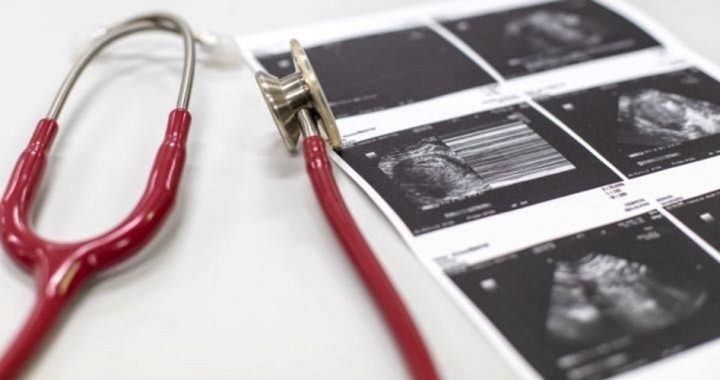
Podcast: Play in new window | Download ()
Subscribe: Android | RSS | More
Within hours of an Obama judge blocking Arkansas’ strict anti-abortion law, a representative of the state’s attorney general announced she would be filing an appeal. This brings the day ever closer when one of many similar laws, and blockages by liberal judges, will be appealed to and reviewed by the Supreme Court. And that, according to many observers, will be the beginning of the end of the abortion holocaust that has haunted America since 1973.
The Arkansas law bans abortion after 18 weeks of pregnancy (with very limited exceptions). It also mandates that physicians performing abortions must be board-certified or board-eligible in obstetrics and gynecology. This requirement would be the death knell for the only remaining abortion clinic still operating in the state. In addition, it would prohibit an abortion sought solely because the fetus was diagnosed with Down syndrome.
Wrote U.S. District Court Judge Kristine Baker, appointed to the position by President Obama in 2012: “The Court concludes that, at this stage of the proceedings and on the record evidence currently before the Court, plaintiffs [Planned Parenthood, the ACLU, and Little Rock Family Planning Services] are likely to prevail on their argument that (the ban) unconstitutionally restricts pre-viability abortions and, therefore, is facially unconstitutional.” In addition, “Plaintiffs are likely to prevail … as those findings contradict binding Supreme Court precedent with respect to how viability is to be determined.”
The three measures, concluded Baker, would “cause ongoing and imminent irreparable harm to the plaintiffs and their patients … who are unable to obtain abortion care as a result of (the acts).”
In other words, Baker would rule against Arkansas in its attempt to ban abortion and save the lives of the unborn in the state. The appeal of her yet-to-be-announced decision brings the day closer when the Supreme Court will take under review state abortion laws.
The ACLU and Planned Parenthood are challenging Alabama’s near-total abortion ban as well as “heartbeat” bills in Georgia and Ohio. Similar laws passed by Kentucky, Mississippi, Louisiana, Indiana, Texas, Utah, and Missouri are all facing court challenges.
Pro-life supporters are hoping that one of them will be taken under review by the Supreme Court.
This brings us to Chief Justice John Roberts, now perceived to be the “swing” vote in such a review. Efforts by liberal-left VOX to discern Roberts’ position on abortion has frustrated them, so opaque have been his public utterances and legal opinions. In its analysis and projection of Roberts’ position on the issue, it wrote last July, “Though all justices try to give a politically palatable version of their answer [on the question of a woman’s so-called right to privacy conjured in Roe v. Wade], Roberts was remarkably difficult to pin down … during his Senate confirmation hearings.” In 2005 Roberts’ waffle was remarkable, telling senators on the Judiciary Committee: “There’s nothing in my personal views based on faith or other sources that would prevent me from applying the precedents of the Court faithfully.”
VOX looked further back into Roberts’ judicial history:
As a federal attorney in Republican administrations, Roberts helped craft briefs that said Roe had been wrongly decided and should be overturned. While the chief justice is widely said to be deferential to existing precedents — that was the crux of his statements on Roe before the Senate — he has also in his opinions helped to roll back existing case law.
Melissa Murray, a law professor at New York University, told VOX: “We know very little about Chief Justice Roberts’ personal views on abortion and reproductive freedom. What we do know is that he is a practicing Catholic and his wife (who is also a Catholic) has been involved with Feminists for Life, a group that opposes abortion. And in 1990, as a lawyer with the Department of Justice, Roberts penned a brief that argued Roe v. Wade was wrongly decided and should be overturned.”
However, given the Court’s high profile and increasing focus by abortion activists on both sides of the issue, and Roberts’ concern about the legacy he will leave behind when he eventually steps down, VOX thinks that the Court will step lightly when the issue finally lands on their calendar:
Combine all those ingredients and the most likely path under Roberts seems to be an incremental process of narrowing abortion rights piece by piece. Roberts’ reputational concerns are real, and the public seems more in favor of keeping Roe than nixing it. The chief justice also does have legitimate philosophical priors about respecting precedent and issuing the narrowest possible opinions. A splashy, dramatic, and wholesale reversal of Roe is not really in keeping with Roberts’s modus operandi.
There is one other possible outcome. Appeals from lower courts could continue to be refused by the high court until Trump is able to name another conservative to replace a liberal, perhaps Ginsburg. Then the issue could be addressed frontally and Roberts could hide behind the Court’s overthrow of Roe v. Wade in a future 5-4 decision.
Photo: Sinhyu / iStock / Getty Images Plus
An Ivy League graduate and former investment advisor, Bob is a regular contributor to The New American primarily on economics and politics. He can be reached at [email protected].
Related articles:
Recent Poll Reveals 95 Percent of Biologists Say Human Life Begins at Conception
Justice Thomas Opinion Decries “Erroneous Precedent,” Hints at Overturn of Roe v. Wade



